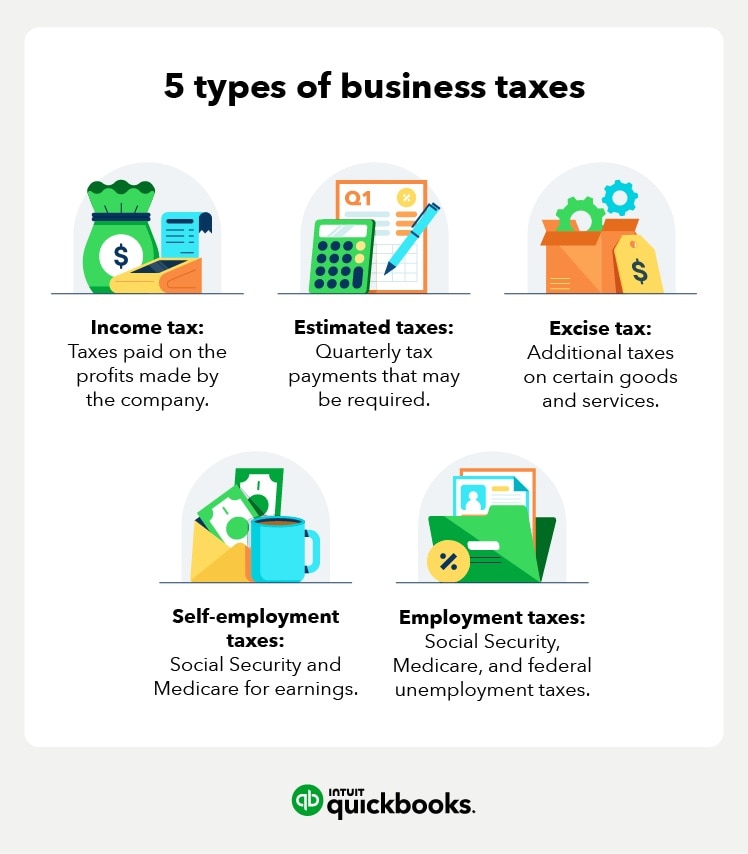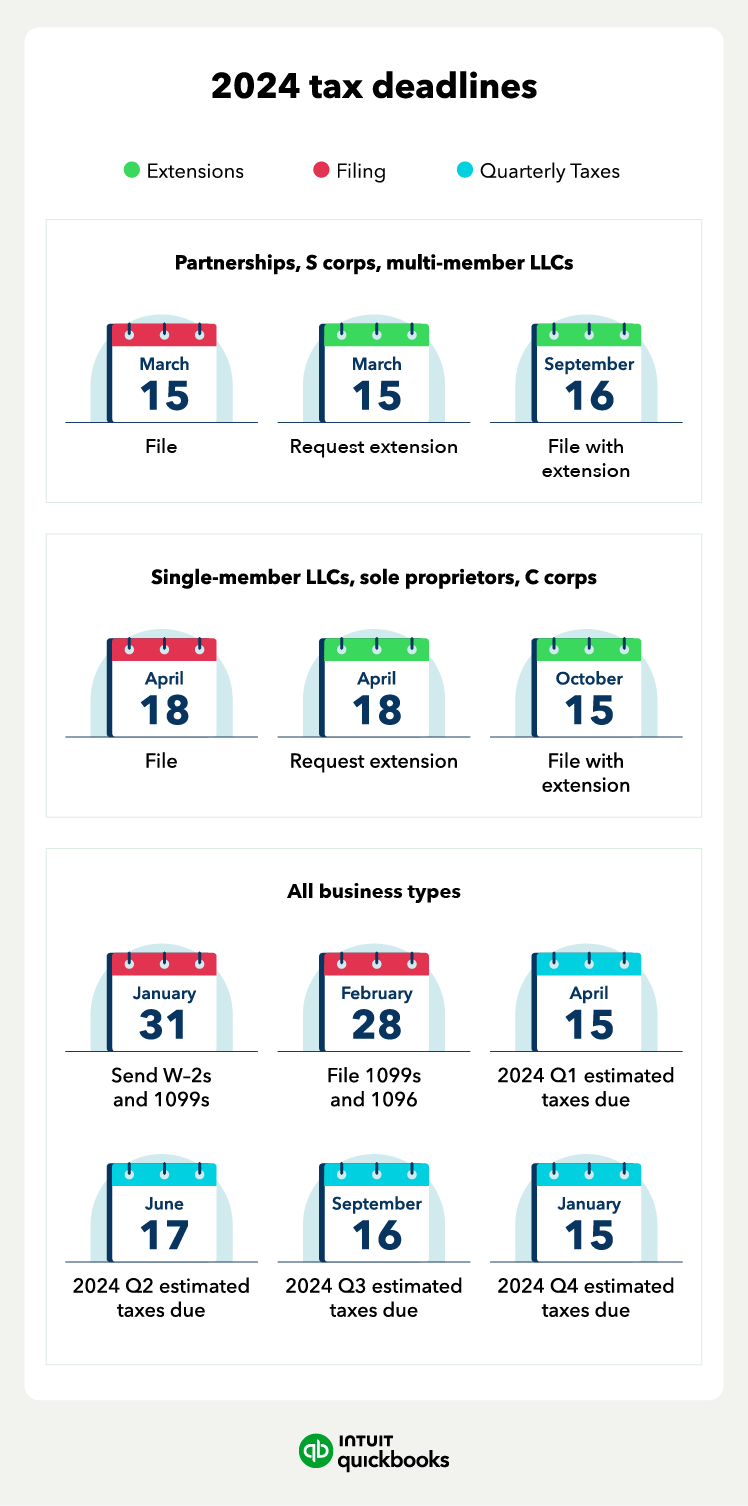Estimated taxes
Businesses are required to pay estimated taxes quarterly. If you run a C Corporation and you think you'll owe more than $500 in taxes, you have to pay estimated taxes every quarter. For all other business structures, you need to pay estimated taxes, too, but only if you expect to owe more than $500 on your personal tax return.
The estimated tax deadlines for 2024 are as follows:
- Jan 16, 2024: 2023 fourth quarter estimated taxes due
- April 15, 2024: 2024 first quarter estimated taxes due
- June 17, 2024: 2024 second quarter estimated taxes due
- Sept 16, 2024: 2024 third quarter estimated taxes due
- Jan 15, 2025: 2025 4th quarter estimated taxes due
If the date for paying taxes falls on a holiday or weekend, taxes will be due the following business day.
Self-employment taxes
If you're a sole proprietor or a partner actively involved in your business, you need to pay both the employee and employer parts of Social Security and Medicare taxes. The current self-employment tax rate in 2024 is 15.3% and is divided as follows:
- 12.4%: Social Security tax
- 2.9%: Medicare tax
If you earn more than $400 from your business, you have to report it as self-employed income and pay the self-employment tax.
Employment taxes
When you have employees in your small business, there are certain taxes you need to handle, known as employment or payroll taxes. Here's what's included:
- Social Security and Medicare tax: Employers are responsible for deducting Social Security and Medicare taxes from employee paychecks. Your business pays part of these taxes, too. Your business pays part of these taxes, too. The current rates are 12.4% for Social Security (6.2% from the employee and 6.2% from your business) and 2.9% for Medicare (1.45% from the employee and the other half from your business).
- Federal and state income tax withholding: As a business owner, you are responsible for withholding income taxes on behalf of your employees. The exact amount varies depending on the W-4 allowances your employees claimed.
- Federal unemployment tax: The current federal unemployment tax rate (FUTA) is 6% on the first $7,000 of income for each employee. You might also need to pay state unemployment taxes, which can be different from the federal rate.
Consult a tax advisor if you’re unclear about any employment taxes you may be responsible for.
Excise tax
Excise taxes are additional taxes you may have to pay on specific goods or services. If your business performs any of the following, you may have to pay excise taxes:
- Communication and air transportation taxes
- Fuel tax
- Retail tax (truck, trailer, semi-trailer chassis and bodies, and tractor)
- Ship passenger tax (transportation by water)
- Manufacturers taxes (coal)
For a full list of which goods and services excise taxes may apply, refer to the excise tax overview page on the IRS website.















